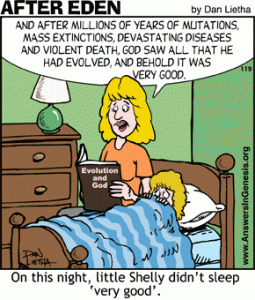 Seven Fatal Flaws of Moral Relativism
Seven Fatal Flaws of Moral Relativism
Greg Koukl is a Christian apologist, radio talk show host, author and blogger in Los Angeles, California. He is the founder of Stand To Reason, a Christian evangelical organization dedicated to the articulation and defense of the Christian worldview.
Concerning moral relativism he writes:
Moral relativism is a type of subjectivism which holds that moral truths are preferences much like our tastes in ice-cream. Moral relativism teaches that when it comes to morals, that which is ethically right or wrong, people can and should do what ever feels right for them. Ethical truths depend on the individuals, groups and cultures who hold them. Because they believe that ethical truth is subjective, the words ought and should are meaningless because everybody’s morality is equal; no one has a claim to an objective morality that is incumbent on others. Relativism does not require a particular standard of behaviour for every person in similar moral situations. When faced with exactly the same ethical situation, one person may choose one response while another may choose the opposite. No universal rules of conduct apply to everyone.
Flaw 1
Moral relativists can’t accuse others of wrongdoing. Relativism makes it impossible to criticize the behaviour of others, because relativism ultimately denies such a thing a ‘wrongdoing’. If one believes that morality is a matter of personal definition, then you surrender the possibility of making objective moral judgments about the actions of others, no matter how offensive they are to your intuitive sense of right or wrong. This means that a relativist cannot rationally object to murder, rape, child abuse, racism, sexism or environmental destruction if those actions are consistent with the perpetrator’s personal moral understanding of what is right and good. When right and wrong are a matter of personal choice, we surrender the privilege of making moral judgments about the actions of others. However if we are certain that some things must be wrong and that some judgments against another’s conduct are justified – then relativism is false.
Flaw 2
Relativists can’t complain about the problem of evil. The reality of evil in the world is one of the first objections raised against the existence of God. This entire objection hinges on the observation that true evil exists. Objective evil cannot exist if moral values are relative to the observer. Relativism is inconsistent with the concept that true moral evil exists because it denies that anything can be objectively wrong. If there is no moral standard, then there can be no departure from the standard. Thus relativists must surrender the concept of true evil and, ironically, must also surrender the problem of evil as an argument against the existence of God.
Flaw 3
Relativists can’t place blame or accept praise. Relativism renders the concepts of praise and blame meaningless, because no external standard of measurement defines what should be applauded or condemned. Without absolutes, nothing is ultimately bad, deplorable, tragic or worthy of blame. Neither is anything ultimately good, honourable, noble or worthy of praise. Relativists are almost always inconsistent here, because they seek to avoid blame, but readily accept praise. Since morality is a fiction, so too relativists must remove the words praise and blame from their vocabularies. If the notions of praise and blame are valid, then relativism is false.
Flaw 4
Relativists can’t make charges of unfairness or injustice. Under relativism, the notions of fairness and justice are incoherent as both concepts dictate that people should receive equal treatment based on some agreed external standard. However relativism does away with any notion of external binding standards. Justice entails punishing those who are guilty of a misdemeanour. But under relativism, guilt and blame do not exist – if nothing is ultimately immoral, there is no blame and therefore no guilt worthy of punishment. If relativism is true, then there is no such thing as justice or fairness because both concepts depend on an objective standard of what is right. If the notions of justice and fairness make sense, then relativism is defeated.
Continue reading

 Historically, Protestant theologians have highlighted four defining attributes of Scripture: necessity, sufficiency, clarity, and authority. Each of these attributes is meant to protect the truth about the Bible and safeguard against common errors.
Historically, Protestant theologians have highlighted four defining attributes of Scripture: necessity, sufficiency, clarity, and authority. Each of these attributes is meant to protect the truth about the Bible and safeguard against common errors. In this special TBN “Praise the Lord” program, host Matt Crouch interviews his guests Ken Ham, Ray Comfort, Dr. John A. Bloom, Sean McDowell, Eric Hovind and Dr. Hugh Ross. Music is by Christian Ebner.
In this special TBN “Praise the Lord” program, host Matt Crouch interviews his guests Ken Ham, Ray Comfort, Dr. John A. Bloom, Sean McDowell, Eric Hovind and Dr. Hugh Ross. Music is by Christian Ebner.